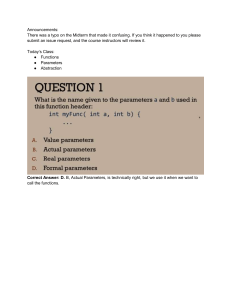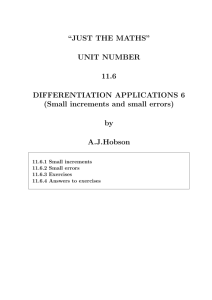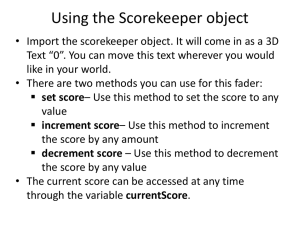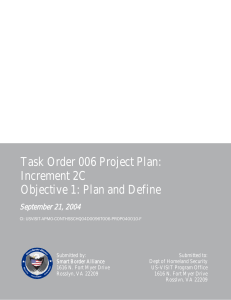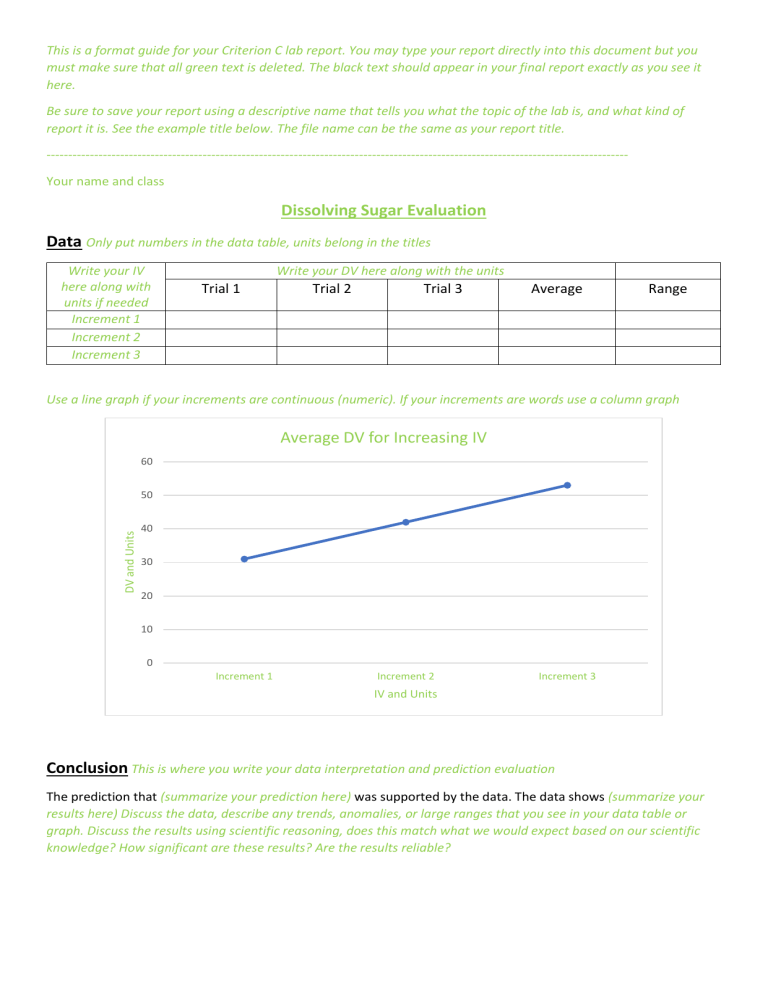
This is a format guide for your Criterion C lab report. You may type your report directly into this document but you must make sure that all green text is deleted. The black text should appear in your final report exactly as you see it here. Be sure to save your report using a descriptive name that tells you what the topic of the lab is, and what kind of report it is. See the example title below. The file name can be the same as your report title. -------------------------------------------------------------------------------------------------------------------------------------Your name and class Dissolving Sugar Evaluation Data Only put numbers in the data table, units belong in the titles Write your IV here along with units if needed Increment 1 Increment 2 Increment 3 Write your DV here along with the units Trial 1 Trial 2 Trial 3 Average Range Use a line graph if your increments are continuous (numeric). If your increments are words use a column graph Average DV for Increasing IV 60 DV and Units 50 40 30 20 10 0 Increment 1 Increment 2 Increment 3 IV and Units Conclusion This is where you write your data interpretation and prediction evaluation The prediction that (summarize your prediction here) was supported by the data. The data shows (summarize your results here) Discuss the data, describe any trends, anomalies, or large ranges that you see in your data table or graph. Discuss the results using scientific reasoning, does this match what we would expect based on our scientific knowledge? How significant are these results? Are the results reliable? Evaluation This is where you write your method evaluation, improvements and extensions Source of Uncertainty State the sources of error in your experiment, list them in order of impact on results Stirring speed Timing Increments too close together Impact on the Reliability of Results Explain how this error affected your data Improvement Describe how to modify the experiment to avoid this error The stirring speed was not constant, if it was faster in one trial it would cause the sugar to dissolve in less time It was difficult to tell exactly when the sugar was dissolved, sometimes the timer may have been stopped too early or too late The volumes of water used were too similar (100ml, 150ml, 200ml) to see a difference in the results Use a clock to time the stirs, or use a magnetic stirrer Place the beaker on a dark surface to make the sugar cube easier to observe Use increments that are spaced farther apart, for example 100ml, 200ml, 300ml The method provided (or did not provide) valid results that answered the question (insert research question here). Discuss the weakness and strengths of your method to back up your statement of validity above. Describe one extension to your investigation that could help you learn more about this topic. (what would be interesting to try next?)
